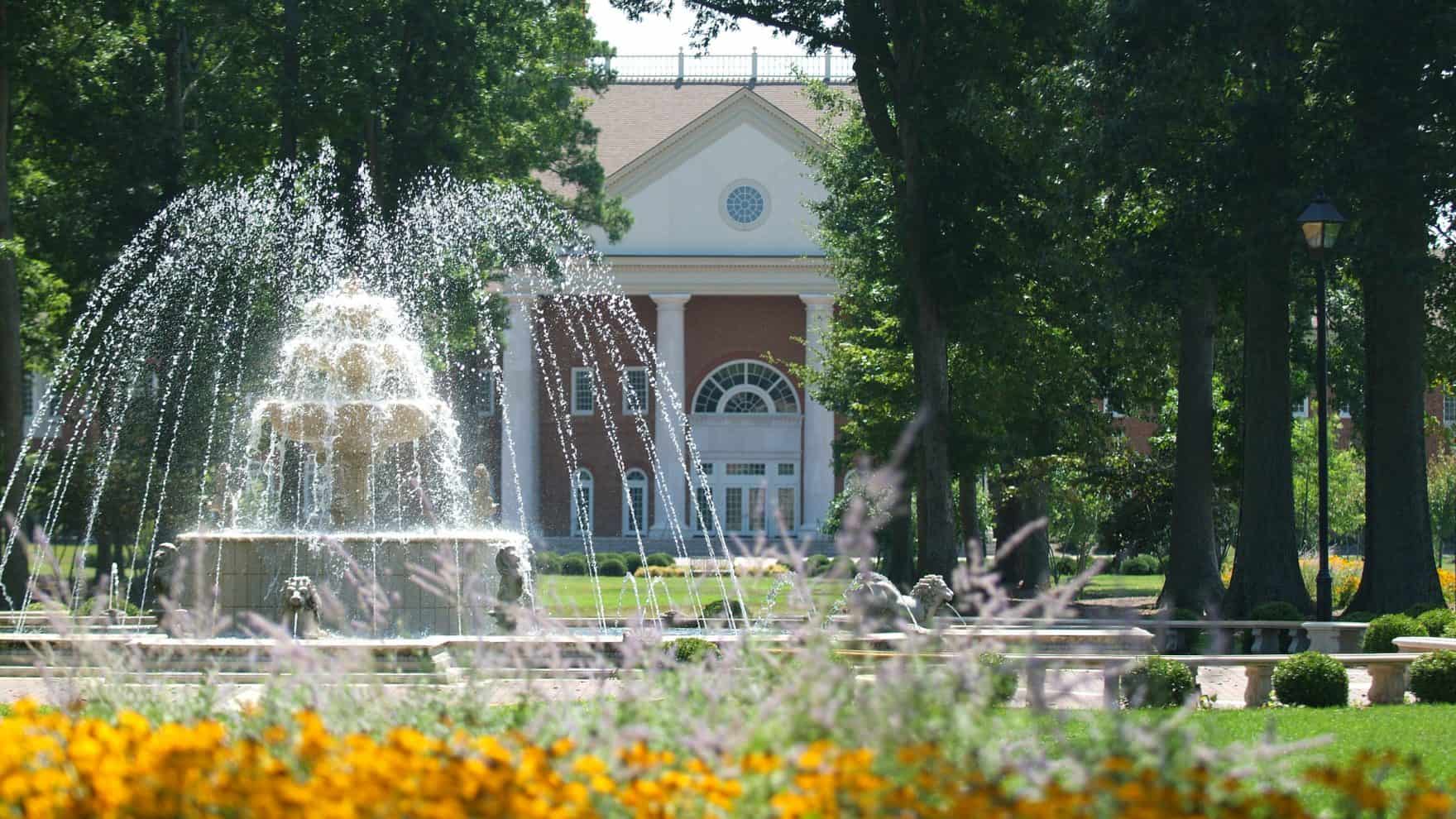
CAS Moot Court Team Finishes Third in the Nation
Teams of competitors in Regent University’s College of Arts & Sciences (CAS) shook the Moot Court world by winning the American Collegiate moot court Competition (ACMA) on Regent’s campus in November. Now three teams have returned from a national tournament in Miami. After pairs of students clashed over a public policy debate about a constitutional issue, Regent students placed third in the United States.
“We worked over Christmas break preparing and as soon as we arrived back at school, spent every spare minute practicing so that we could compete at the highest level,” said Hilary Davenport ’15 (CAS). “At Nationals, we competed against the top 80 teams from schools all around the country. The competition was tough, but Regent was able to do well.”
Davenport and Michael Maunder took the third place award at the ACMA Moot Court National Competition. Maunder was recognized as 10th best speaker.
“It takes a lot of hard work, a lot of determination, a lot of grappling with difficult and often confusing case law, and the ability to take criticism in stride,” said Regent’s Moot Court Coach Jessica Krentz, a third year law student at Regent. “To succeed, you do need a good dose of natural talent and the ability to think like a lawyer, but hard work is the most crucial ingredient.”
This crucial ingredient paid off in Regent’s CAS Moot Court team’s journey preparing for the tournaments. Krentz brought her experience from two intramural and three interscholastic moot court competitions to coach Regent’s teams on to victory.
In college, she competed in forensic speech, and in high school, mock trial. It was her desire to try her hand at teaching and leading that inspired her to become Regent’s CAS Moot Court team’s coach.
“Competitors practiced for two to four days per week for several months, memorizing legal arguments, being tutored on appellate advocacy rules and techniques, analyzing and discussing complex issues of constitutional law, and, most importantly, getting on their feet before mock panels of judges and articulating complete and cohesive arguments. It’s grueling, difficult work, but very rewarding,” said Krentz.
“Competing with the Regent University Debate Association (RUDA) was one of the most formative experiences I’ve had at Regent,” said Davenport. “I began as a freshman and competed every year of my collegiate career. Being coached by third year law students provided an opportunity to continue to learn new things and grow every year.”
Students compete in moot court as an extracurricular activity at Regent within RUDA. Assistant Professor Dr. Nicholas Higgins joined the CAS government department in 2014. He volunteered to take on the task of sponsoring the CAS Moot Court team. As a graduate of Patrick Henry College, Moot Court was a critical part of his education. Patrick Henry’s Moot Court teams have a solid reputation, winning the national tournament seven times within the last nine years.
“I think a lot of the students who participate in Moot Court want to go to law school, so it creates a self-selection of people who are already very interested in these types of things, and I have seen that the schools succeed well year after year, the students who go there want to make this type of thing their career. They take it seriously. It’s not just an extra-curricular activity. It’s an extra-curricular activity that will benefit them in the long run.”
The ACMA releases a mock court case in May. Each year it takes a public policy debate and turns it into a constitutional issue. Teams prepare to argue both sides before an imaginary 13th U.S. Circuit Court of Appeals out of Olympia. About 20 Regent students paired up in September, spending two to four hours on weekends and countless hours during evenings in the week to fine-tune their arguments and their presentation skills. The law students, professors and attorneys who judge tournament rounds evaluate teams based on how well they interpret law and quickly craft logical arguments.
“It takes a lot of practice and reading. You’ve got to put your head into the cases and start reading, start figuring out what is going on,” said Higgins. “Then you give the students some questions, have them write out a presentation, and then you start hammering them with questions. It’s one of those things you have to learn while you are on your feet.”
RUDA sponsors Regent’s moot court teams. It’s a student organization within the Government, History and Criminal Justice department in CAS.

